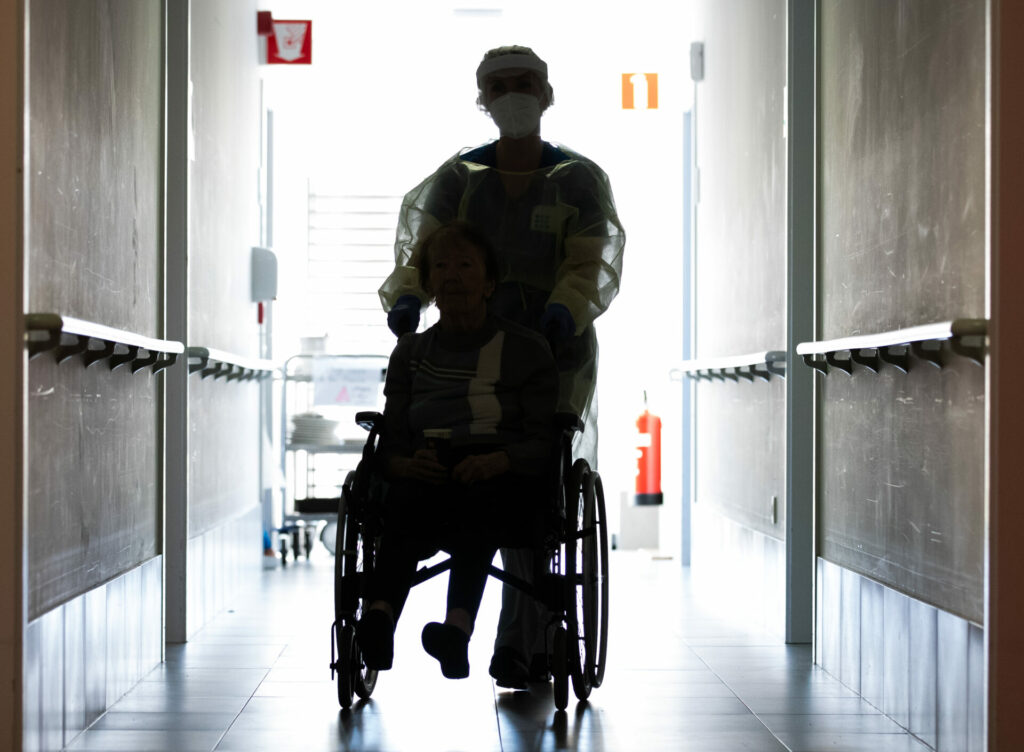The umbrella organisation of residential care homes in Belgium has stressed that the next government should make the ageing population an absolute priority.
There are currently 220,000 people over the age of 85 in Belgium. This figure is expected to rise to almost 350,000 in the next 15 years, which will pose major challenges as the need for care and support rises exponentially for this age group.
"We can speak of a demographic time bomb without exaggeration. After all, the number of care needs will increase tremendously. In the same period, the number of people 'of working age' will continue to fall, meaning scarcity in all segments of the labour market will continue to grow," said Margot Cloet, head of Zorgnet-Icuro, the umbrella organisation of more than 300 residential care homes in Belgium.
She argued that, while this risk has long been known, it is not translating into improved policies, resulting in Belgium being far too little prepared for the tsunami that will hit the current healthcare system.
"If we as a society do not prepare for this, healthcare is at risk of imploding at some point, with many people no longer having access to care, waiting lists, and a gap between those who can still buy expensive private care and those who have nowhere to go."
Controversial policy changes
Ahead of the 2024 elections, she has called on the next government to make the matter an absolute priority. She believes that preparing for the ageing wave requires courageous long-term policies, and that these must be outlined in the next legislature.
There are currently around 85,000 available places in residential care centres in Flanders and Brussels, of which 95% are occupied. The organisation has proposed several measures that the Flemish Government should implement, starting with increasing the number of residential care units by 7,000 by 2030.
Cloet criticised the fact that the Flemish Government has not yet made decisions on the number of new residential care home units that can be added before the end of this legislature. "But implementing new residential care projects takes years. Care providers cannot plan for after 2025 due to the lack of clarity." She added that this could see growing waiting lists after 2025.
A different form of residential care is also needed for people with a 'lighter' care profile – who still make up 15% of retirement home residents today. Therefore, the available housing units in residential care centres should be reserved as a priority for elderly people with severe and complex care needs. For those who are not in need of this care, other adapted forms of residential care must be developed or expanded.
Related News
- Belgium's battle with antibiotics: Overuse fuels fears of resistance
- Ticking demographic time bomb in Flanders will 'see elderly care crash'
"This component is just as necessary to allow people to live at home for longer. We have in mind daycare, orientation short stay, convalescence accommodation, assisted living, local service centres, family care, home nursing, support of informal care and volunteers, and neighbourhood care. We need to invest heavily in these in the coming years," said Cloet.
Flemish Minister of Welfare Hilde Crevits acknowledged that there are major challenges in elderly care but stressed that many steps have already been taken and that a future plan for elder care is in full swing.
"We want people to live as long as possible in their home environment; we have been working on that for some time. But specialised care will remain necessary. This is not just about extra buildings and places, but also about the quality we want to offer," she said in a response published by Belga News Agency.

